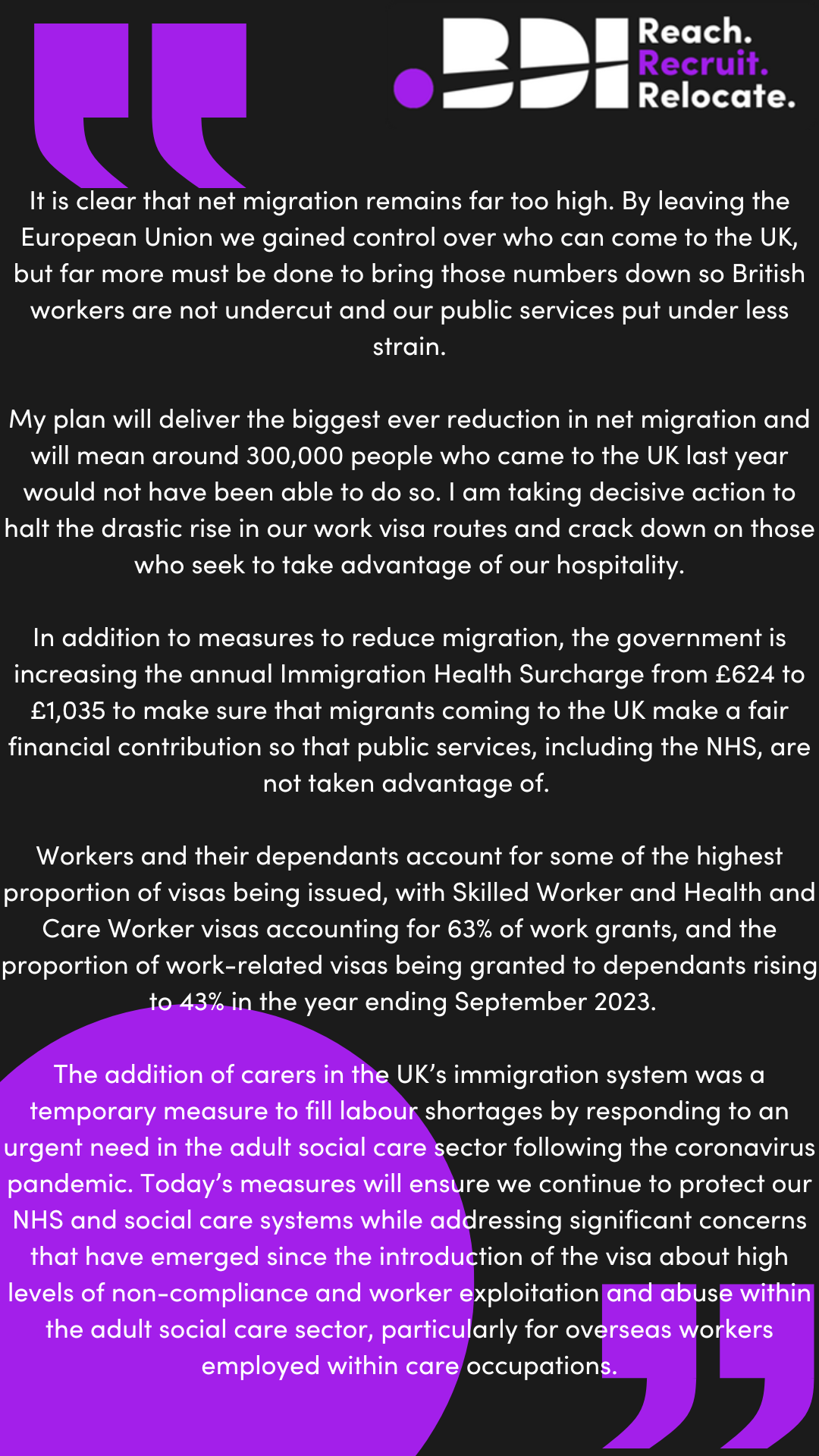
UK Visa Changes and the Impact on IMG Doctors
06 Dec, 20235 Minutes
In a significant development, the UK Home Secretary has announced comprehensive changes aimed at drastically reducing net migration and addressing concerns around the abuse of the immigration system. It's important to note that these changes will not impact international doctors, who are exempt from these modifications.
Overview of the Changes
The plan aims to bring about the largest reduction in net migration ever seen. The key elements include reducing the number of dependants allowed entry, increasing minimum salary requirements for overseas workers and family sponsors, and addressing exploitation within the immigration framework. These measures are projected to prevent approximately 300,000 people, who could have entered the UK last year, from doing so under the new rules.
More specifically:
- Minimum salary requirements for spouse or family visa will rise to £38,700.
- Care workers will not be able to bring their partner or children as dependents.
- Health surcharge rising to £1,035.
- The Shortage Occupation List will be reformed and the current 20% going rate salary discount for shortage occupations will be abolished.
Changes to Health and Care Worker Visa
One of the critical areas of focus is the Health and Care Worker visa. The government plans to restrict overseas care workers from bringing their dependants to the UK (not applicable to doctors). Additionally, care providers in England will be limited to sponsoring migrant workers engaged in activities regulated by the Care Quality Commission. This tightening follows the issuance of over 100,000 Health and Care Worker visas in the year ending September 2023, along with a considerable number of dependant visas.
Minimum Salary Thresholds
The government is also set to increase the earnings threshold for overseas workers by nearly 50%, from £26,200 to £38,700. Once again, this doesn’t impact doctors. This move is intended to encourage businesses to prioritize British talent and invest in their workforce. The minimum income requirement for British citizens and settled residents who wish to bring family members to the UK will also see a rise. This overall approach reinforces the expectation that those wishing to work and live in the UK must be self-sufficient and contribute to the economy without burdening the state.
To address the issue of low-cost labor from overseas, the government will eliminate the 20% salary discount for shortage occupations and introduce a new Immigration Salary List. The Migration Advisory Committee will review this list against the increased salary thresholds to reduce the number of occupations eligible for the discount.
Graduates and Student Visas
Further, the Graduate visa route will undergo a review to ensure it aligns with the best interests of the UK and to prevent potential abuses.
These new measures build on previous actions to reduce the number of students bringing dependants to the UK. This change, effective in the new year, is expected to significantly impact net migration, considering the 153,000 visas issued to dependants of sponsored students in the year ending September 2023.
The Home Secretaries’ Statement
The Home Secretary, James Cleverly, emphasized the necessity of these measures to reduce net migration and relieve pressure on British workers and public services. He highlighted the importance of prioritizing the domestic workforce, as outlined in the government's Back to Work Plan.
Here is his full statement:

In Summary
It's crucial to reiterate that these changes are part of the government's broader strategy to manage migration effectively and protect public services. International doctors remain exempt from these changes, ensuring that their valuable contributions to the UK's healthcare system continue uninterrupted. In conclusion, while these measures represent a significant shift in the UK's immigration policy, the exemption of international doctors underlines the government's commitment to maintaining a robust healthcare workforce.


